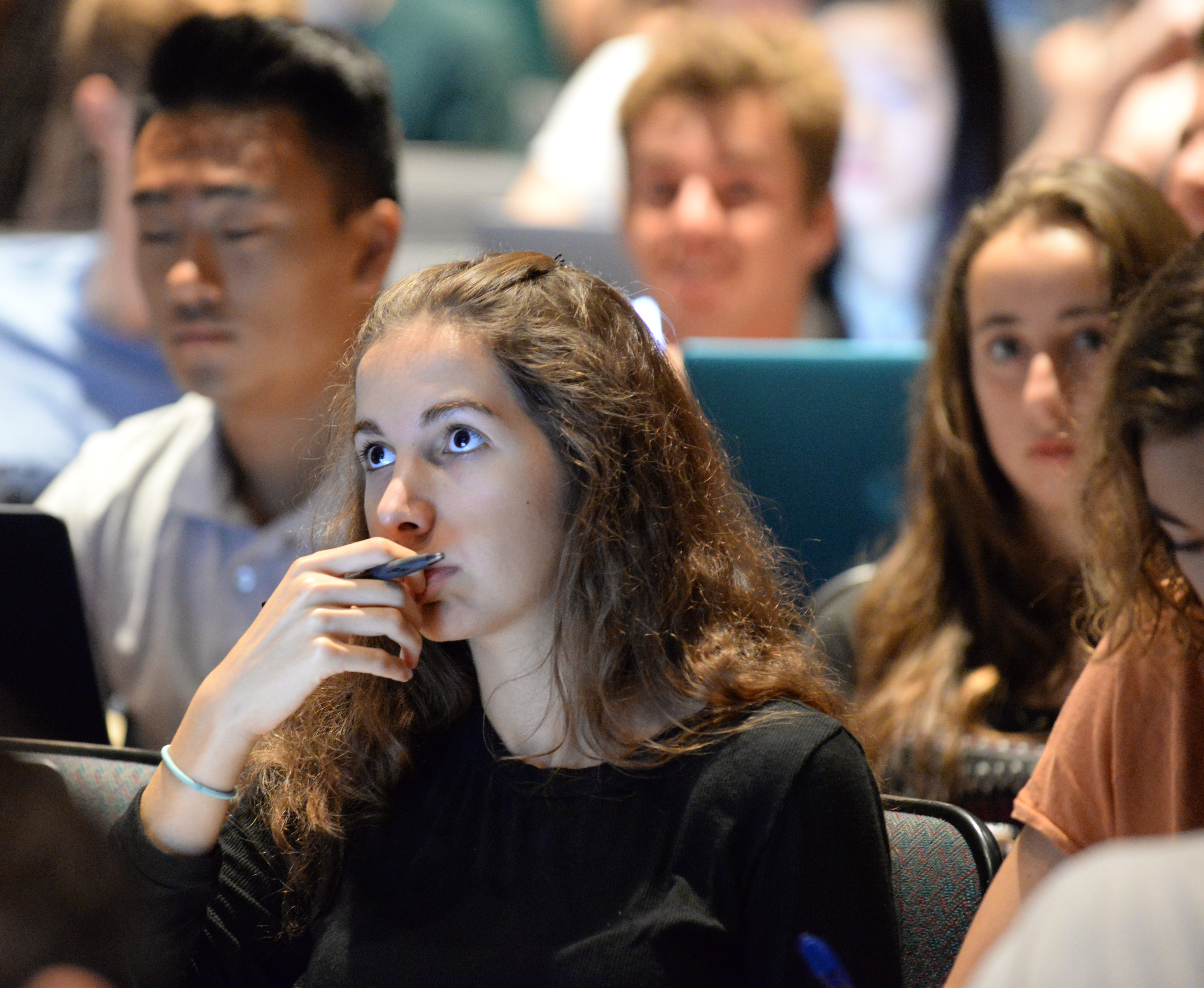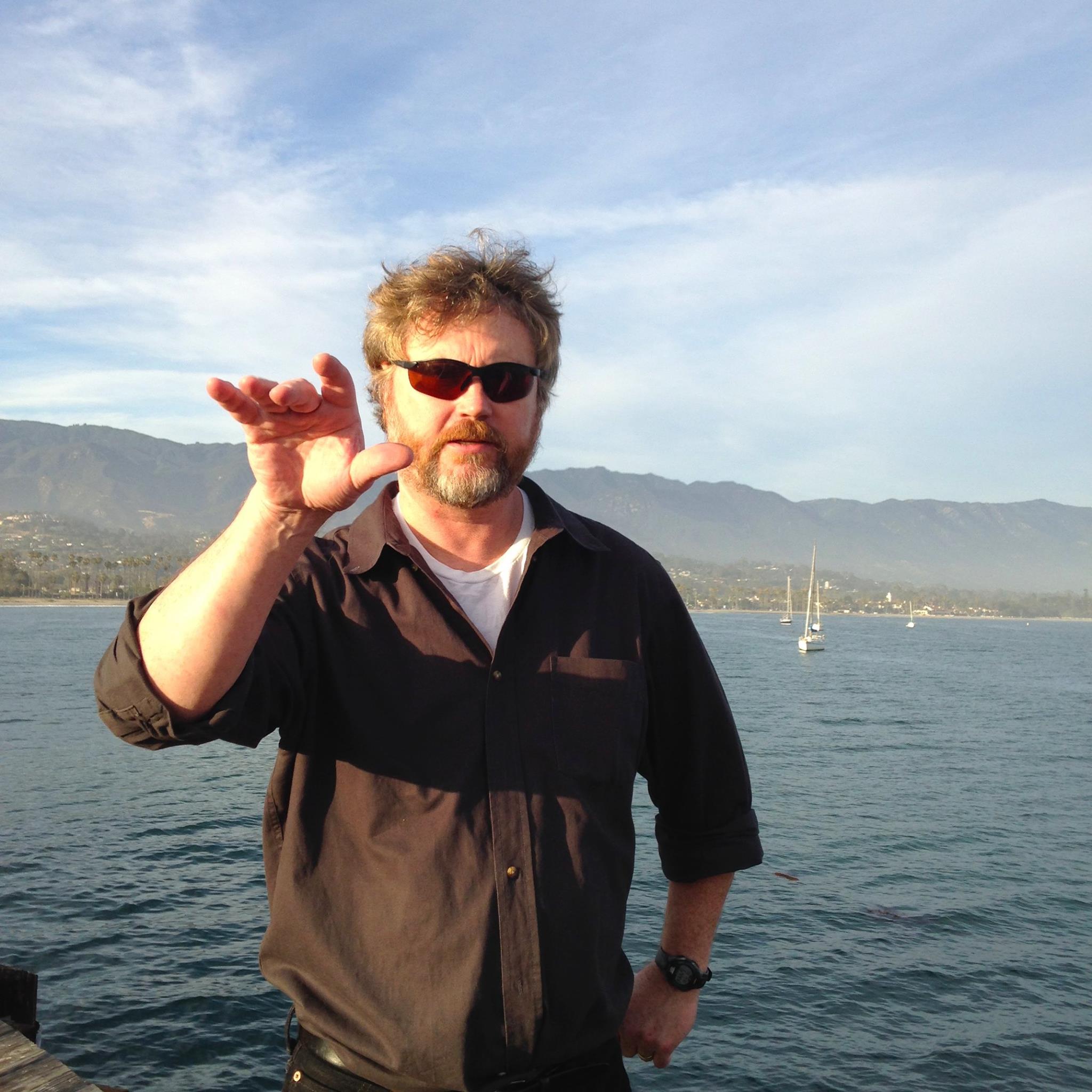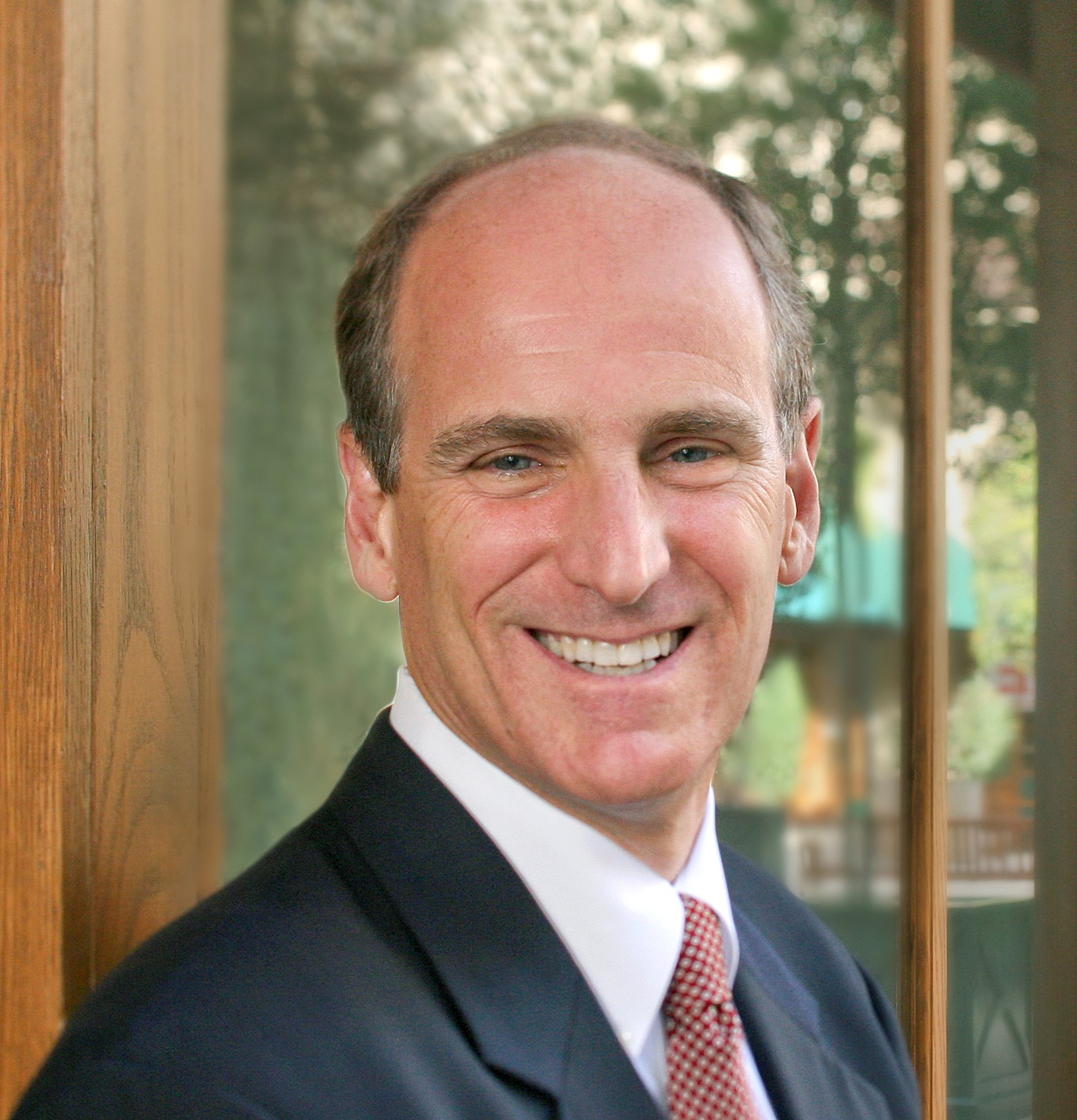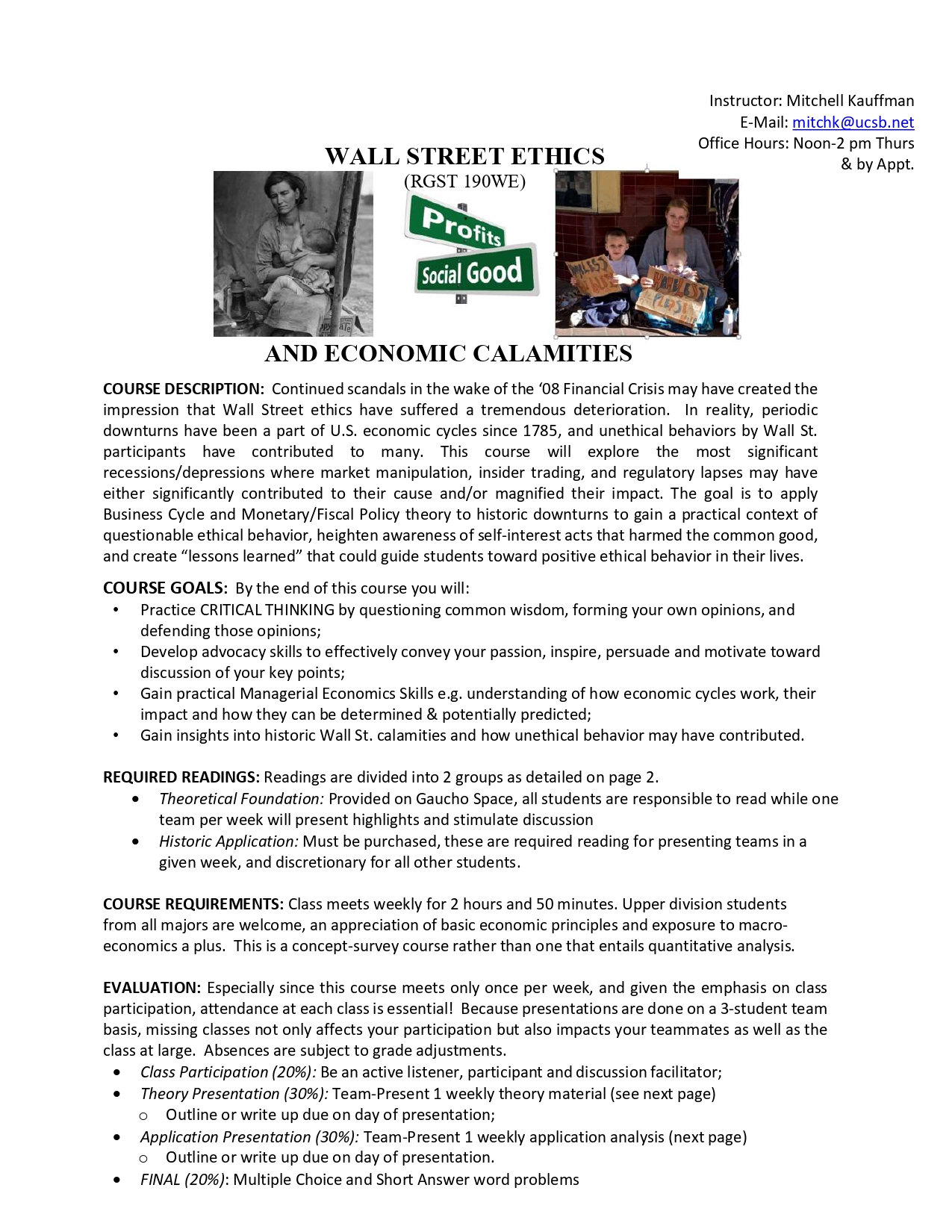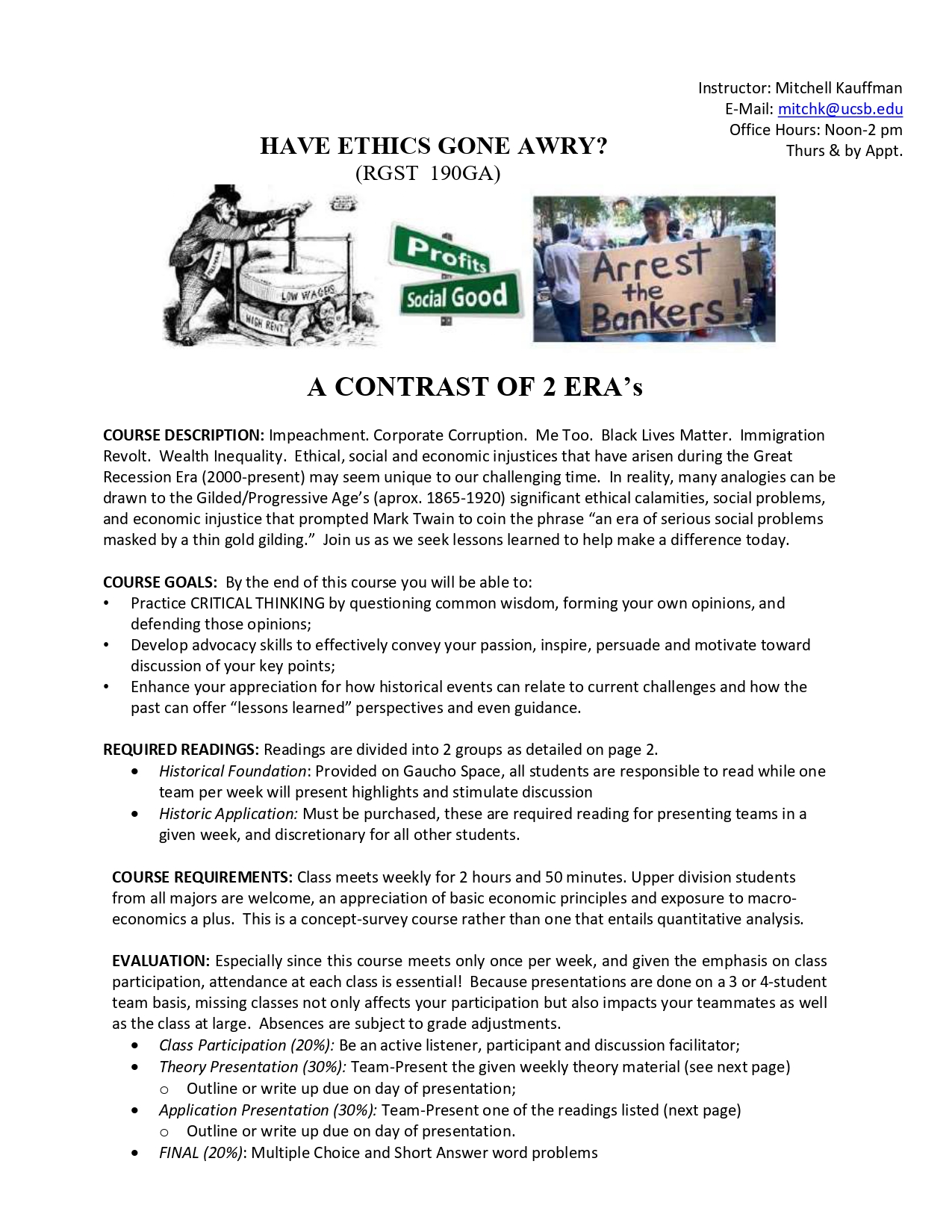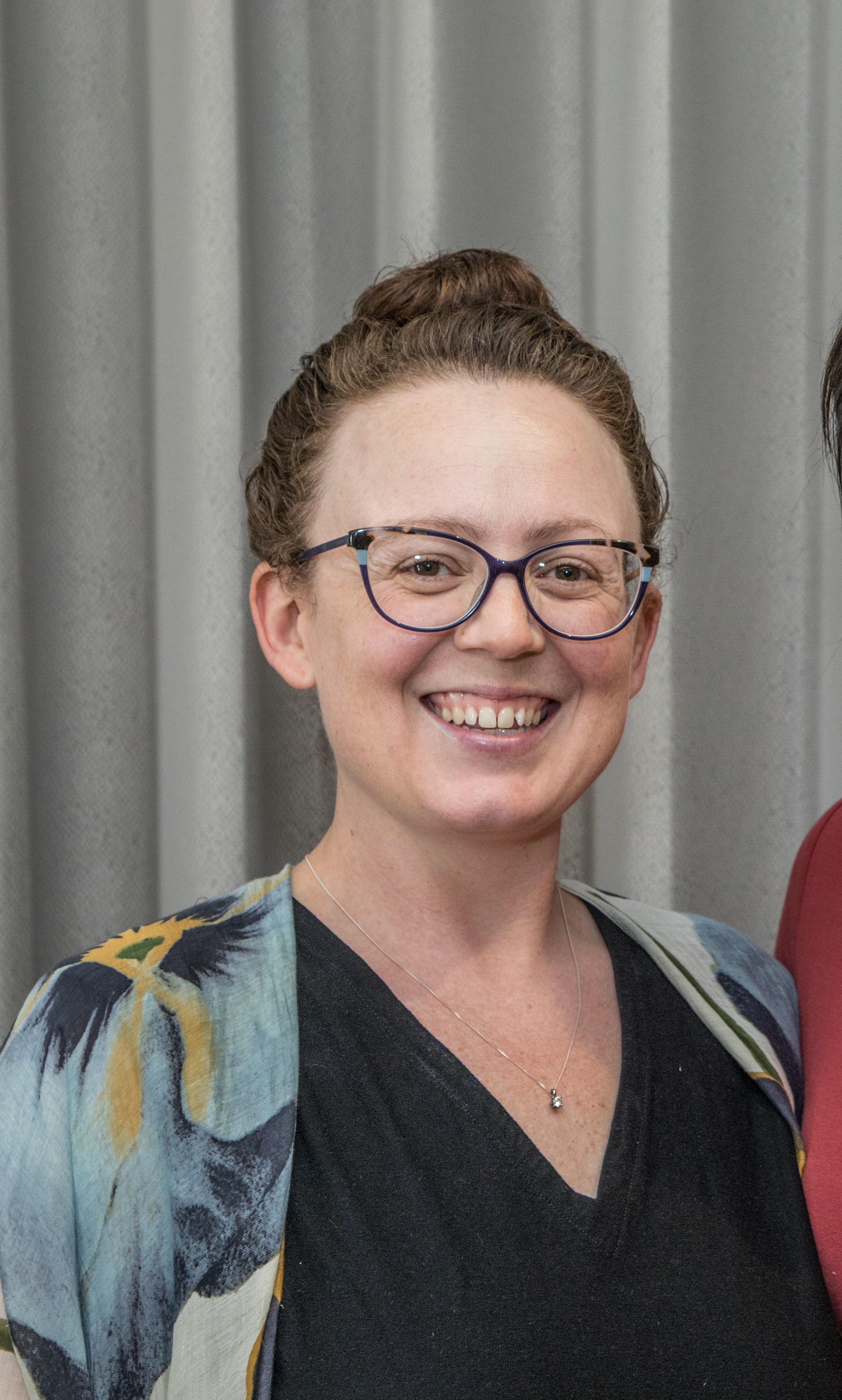Courses on Ethics and Civic Engagement
Environmental Ethics (RG ST 156EE or INT 156EE)
Instructor: Dr. Gregory JarrettEnvironmental ethics probes questions of both personal duty and global policy regarding impact on the natural world. Diverse theoretical and practical perspectives are brought to bear on topics such as climate change, sustainable economics, overpopulation, and the standing of nonhuman animals.
Biomedical Ethics (RG ST 156BE or INT 156BE)
Instructor: Dr. Gregory JarrettThis course explores evolving and often troubling ethical questions surrounding the practice of medicine, medical research, and developing biotechnologies. The goal is to develop a responsible and universal set of moral principles to guide and evaluate our policies on issues such as health care rights, informed consent, HIV treatment, abortion, stem cell research, genetic enhancement, animal experimentation, and end of life care, including euthanasia and physician assisted suicide. Any students interested in applied ethics are welcome. Prerequisite: Junior standing.
Diversity & Justice (RG ST 156DJ or INT 156DJ)
Instructor: Dr. Gregory JarrettThis course explores contemporary theories of social justice, and how they apply to current issues of living in a diverse and multicultural society. Special emphasis is put on differences in race, gender, class, religion, sexual orientation, age, and physical ability. In addition to broad themes in justice, equality, racism, and oppression, the course also focuses on particular social topics such as free speech/hate speech, affirmative action, sexual violence, same-sex marriage, immigration, capital punishment, health care reform, abortion, and other pressing issues on which we disagree.
Ethics & the College Experience (RG ST 156CE)
Instructor: Dr. Gregory JarrettCritical examination of moral, social and political issues that arise on college campuses. Examines theories and methods of reasoning about moral relations, rights, duties, dissent, and conflicts arising in the shared campus community. Explores the challenges and opportunities available to college students as learners, and raises questions about the role of the student and the purpose of the university as a whole.
Ethical Investing to Impact Social Change (RG ST 190EI)
Instructor: Mitchell KauffmanWhether your passion is protecting the environment, fighting poverty, or promoting global health care, “Ethical Investing” can impact positive change. This course balances theory with actual case studies to show how profit incentives may be combined with social consciousness for a win-win outcome. Students will come away informed, inspired, and well-equipped to pursue a lifetime of championing social causes.
Wall Street Ethics and Economic Calamities (RG ST 190WE)
Instructor: Mitchell KauffmanContinued scandals in the wake of the ‘08 Financial Crisis may have created the impression that Wall Street ethics have suffered a tremendous deterioration. In reality, periodic downturns have been a part of U.S. economic cycles since 1785, and unethical behaviors by Wall St. participants have contributed to many. This course will explore the most significant recessions/depressions where market manipulation, insider trading, and regulatory lapses may have either significantly contributed to their cause and/or magnified their impact. The goal is to apply Business Cycle and Monetary/Fiscal Policy theory to historic downturns to gain a practical context of questionable ethical behavior, heighten awareness of self-interest acts that harmed the common good, and create “lessons learned” that could guide students toward positive ethical behavior in their lives
Have Ethics Gone Awry? (RG ST 190GA)
Instructor: Mitchell KauffmanImpeachment. Corporate Corruption. Me Too. Black Lives Matter. Immigration Revolt. Wealth Inequality. Ethical, social and economic injustices that have arisen during the Great Recession Era (2000-present) may seem unique to our challenging time. In reality, many analogies can be drawn to the Gilded/Progressive Age’s (aprox. 1865-1920) significant ethical calamities, social problems, and economic injustice that prompted Mark Twain to coin the phrase “an era of serious social problems masked by a thin gold gilding.” Join us as we seek lessons learned to help make a difference today.
Seminar in Social Ethics (RG ST 156CC)
Instructor: Nonie HamiltonThis seminar is part of the Capps Center internship program in public service and social ethics. It addresses issues of ethics and the role of governmental and non-governmental organizations in contemporary society. Students will intern in local non-profit organizations in Winter and Spring quarters.
Seminar in Social Ethics (RG ST 156CI)
Instructor: Nonie HamiltonResearch paper part of the Capps Center internship program in public service and social ethics. It describes the student's experience working in a nonprofit organization, combining theoretical material from the previous course on social ethics in fall quarter and practical experience during the winter and spring quarters.
Seminar on Civic Engagement and Deliberative Democracy (RG ST 188ABC)
Instructors: Dr. Katya Armistead, Dr. Viviana MarsanoThis three-quarter-long course is part of the Civic Engagement Scholars Program. In the Fall, students study theoretical framework and historical background of civic engagement in the American university. Students engage in leadership development and learn practices that leaders use to transform values into actions, visions into realities, obstacles into innovations, and risks into rewards. Students develop and practice skills for deliberative discourse, including how to have civil conversations on controversial topics. Students design workshops on a topic of their interest incorporating these issues and skills. In the Winter and Spring, they deliver these workshops to student organizations and the community.

